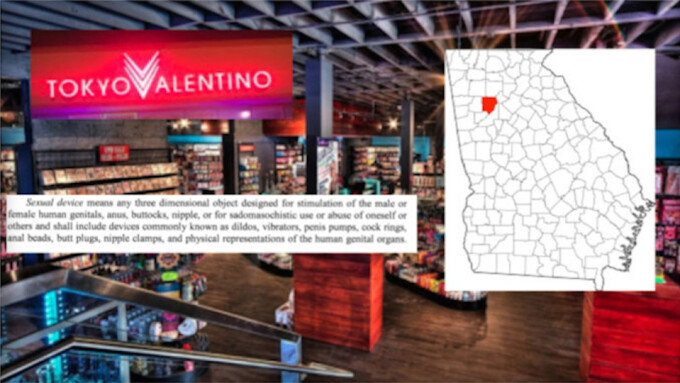EAST COBB, Georgia — Weeks after approving unprecedented changes to its county code in order to target “sexually oriented businesses,” the Cobb County Board of Commissioners has permanently revoked the local business license for Atlanta-area adult boutique Tokyo Valentino.
On Tuesday, the Cobb County Commission voted to revoke Tokyo Valentino’s business license, in a hearing that had originally been planned for last month, the Atlanta Journal Constitution reported.
As XBIZ has been reporting, the onslaught of municipal harassment against Tokyo Valentino is being watched around the country as a bellwether for local moralists' strategies to restrict free access to sexual expression, education and products via regulatory and zoning issues.
The code amendments hastily passed earlier in September, reported local newspaper East Cobb News, “would limit sex shops and other adult businesses to two industrial zoning categories. All such businesses would be required to obtain a special license and employees would have to be issued a special permit.”
'Deleterious Secondary Effects'
The new East Cobb regulations make continuous reference to alleged “deleterious [harmful] secondary effects of sexually oriented business,” based on the circular-thinking notion that any business dealing with sex would attract a criminal element and therefore cannot be zoned near law-abiding society.
Such a regulation has the effect of forcing any business dealing with sex to set up shop in areas with a higher crime rate, self-fulfilling the prophecy of the guardians of morality who associate sexually oriented businesses with a broad, panic-inducing laundry list of “secondary” crimes.
The changes were directly and rapidly effected after Tokyo Valentino opened a store on Johnson Ferry Road previously occupied by a Mattress Firm location.
Here’s how the Cobb Board of Commissioners now defines these “secondary effects” that supposedly follow any business dealing with human sexuality: “personal and property crimes, human trafficking, prostitution, potential spread of disease, lewdness, public indecency, obscenity, illicit drug use and drug trafficking, negative impacts on surrounding property, urban blight, litter and sexual assault and exploitation.”
The “secondary effects” argument is the only rationale given for the business-killing zoning changes.







